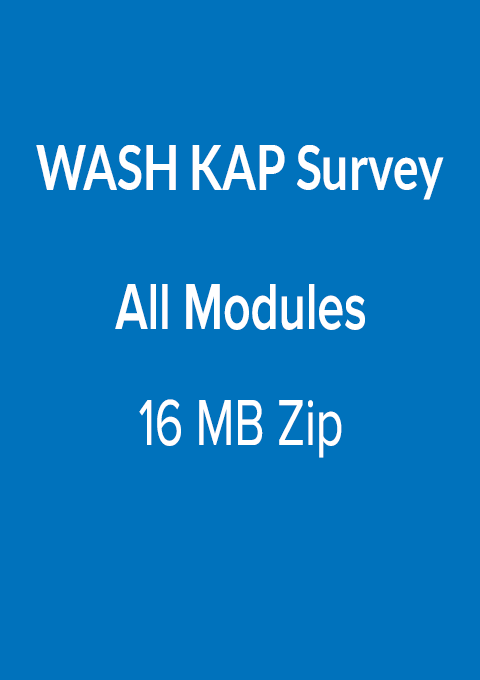
SPHERE guidance related to how humanitarian actors can best respond to the COVID-19 outbreak including fundamental principles, and relevant standards.

This document describes the objectives and underlying principles of WASH programming in the UNHCR Comprehensive Refugee Response Framework, including steps to be taken, and the role of UNHCR. Guidance is provided for all phases of the relief cycle from preparedness to long-term inclusion.

Publisher: UNHCR Year: 2020

This water tanker checklist has been produced to help WASH actors inspect water hauling vehicles used in refugee operations. Please note that it is not a strict compliance document, but is intended to help select water tankers that are sanitary, safe, and legal. Ideally, every vehicle should be inspected before entering service. WASH programs may decide to issue vehicles that pass with a certificate of acceptability for the duration of the operation.

This logbook form should be used as part of the monitoring and payment justification process for water trucking in emergencies. The logbook should be kept by the refugee water monitor responsible for tracking water deliveries to the site and copies should be sent to UNHCR on a weekly basis for monitoring purposes.

This logbook form should be used as part of the payment justification process for water trucking in emergencies. The logbook should be kept with the vehicle at all times for spot checks and copies should be sent to UNHCR on a weekly basis for monitoring purposes.

The Cost of Water Project supports the effective planning and sustainable management of water supply systems in refugee camps and settlements. Launched in 2014 by the Water, Sanitation and Hygiene (WASH) Unit in DPSM’s Public Health Section in partnership with the International Water and Sanitation Centre, the project measures the overall costs of providing effective water systems in a variety of refugee hosting contexts to create a flexible decision-making tool specific to refugee situations.

Brief WASH Flyer illustrating the global challenges delivering WASH services for refugees. The flyer touches on UNHCR’s WASH response to the 2030 agenda and the human right to safe water and sanitation.

UNHCR and Oxfam commissioned this study to better understand how emergency WASH services are delivered, and to identify how the provision of infrastructure can lead to sustainable service delivery and a more professional management mechanism. As many humanitarian crises are protracted in nature, emergency WASH services need to be sustained once humanitarian agencies depart. This report aims to review and identify alternative service delivery options, and to provide some pragmatic guidance that can be incorporated into emergency response programmes and tested, evaluated and built on in the future.
Tags: Excreta Management and Water Supply. Organisations: OXFAM GB, UNHCR, UNHCR, UNHCR, UNHCR, UNHCR, UNHCR, UNHCR, and UNHCR. Categories: WASH Policy Guidelines, WASH Policy Guidelines, WASH Policy Guidelines, and WASH Research Documents.










